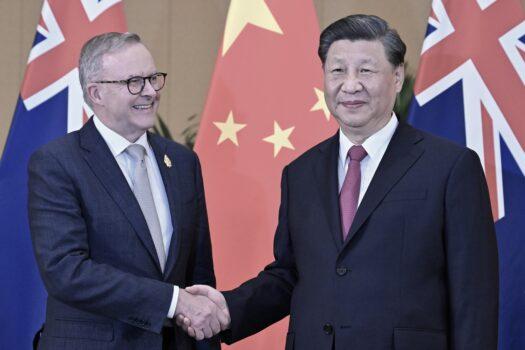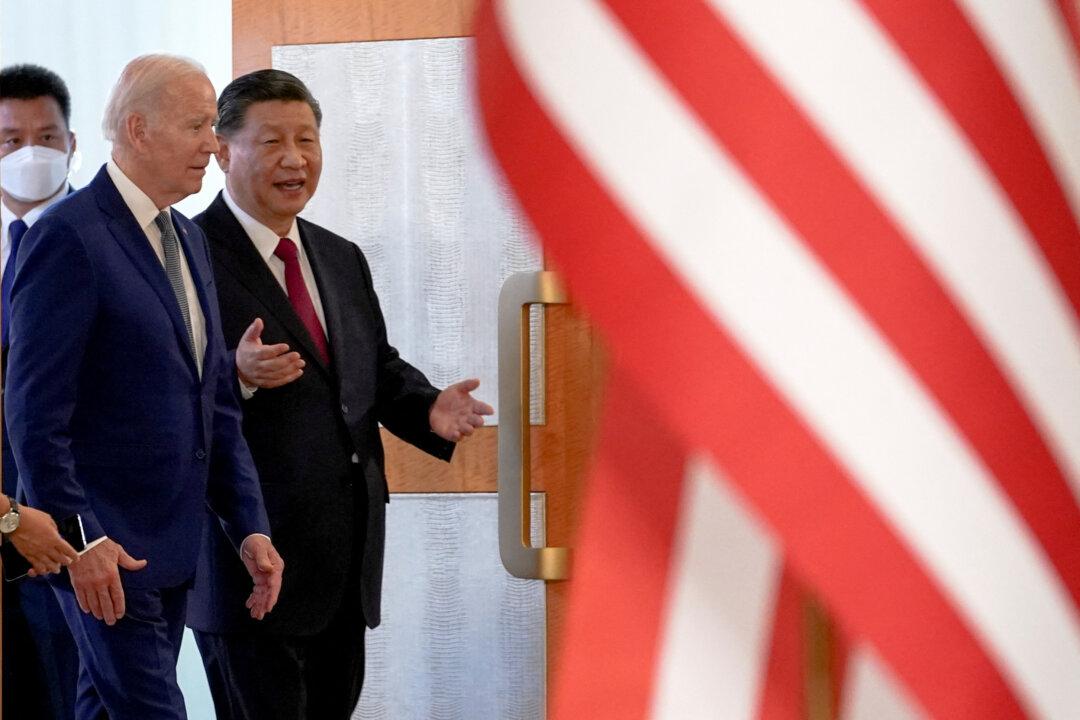Foreign policy experts say a diplomatic thaw with Beijing should not be the end goal for U.S. and Australian leaders, who instead, should focus on compelling the Chinese Communist Party (CCP) to uphold human rights and international rules around trade.
John Lee, the former senior advisor to Australian Foreign Minister Julie Bishop, said recent meetings between U.S. President Joe Biden, Australian Prime Minister Anthony Albanese, and Chinese leader Xi Jinping were only steps towards resuming regular diplomatic communication and any major change to bilateral ties was unlikely.
“Any verbal agreement with Xi should not be relied on or taken seriously given the Chinese leader’s long record of saying one thing and doing something else,” he told The Epoch Times in an email.
“Rather than seek a verbal understanding with Xi which means very little, President Biden’s focus should be to discuss ways to work more closely with Asian allies and partners to constrain China’s strategic options and deter Beijing from considering the use of force to realise its objectives.”
Western Leaders Scramble to Meet With Xi
On Nov. 14, Biden met with Xi at the sidelines of the G20 in Bali, Indonesia where the leaders discussed the future of Taiwan, human rights in China, and global competition.Meanwhile, Albanese met with Xi a day later to raise a host of issues with Beijing including Xinjiang’s human rights issues, the detention of Chinese-Australian nationals, and the possible removal of trade sanctions that have stopped $20 billion (US$13.5 billion) worth of goods entering the China market.

The meeting was welcomed, however, by major business groups including the Australian Industry Group, the Business Council of Australia, and the Australian Chamber of Commerce and Industry.
Beijing Bears Responsibility, Not the West
In response, Lee said Beijing’s trade sanctions—imposed in response to calls for an inquiry into the origins of COVID-19—were a violation of World Trade Organisation rules and the China-Australia Free Trade Agreement.“It is more accurate to say that Beijing should begin to respect its legal and treaty commitments rather than frame normal trade as a result of the normalisation of relations,” he said.
Meanwhile, former Liberal Sen. Eric Abetz, who served as chair of the Senate’s Foreign Affairs Committee, said he welcomed the Australian Labor government’s continuation of the previous Morrison government’s stance on the CCP.
“It was a bit of a change in the policy Labor took—on a populist basis—when they were in opposition, which was that anybody who sought to condemn the brutal dictatorship in Beijing was labelled a ‘racist’ in a misguided bid to obtain support with the Chinese diaspora in Australia,” he told The Epoch Times, noting that in fact, many in local Chinese communities had first-hand experience of CCP human rights abuses.
“But that’s in the past, I trust the prime minister and government will continue to hold the line on fundamental human rights and will not water down and try to justify, or turn a blind eye, to the gross violations perpetrated by the Beijing dictatorship.”





